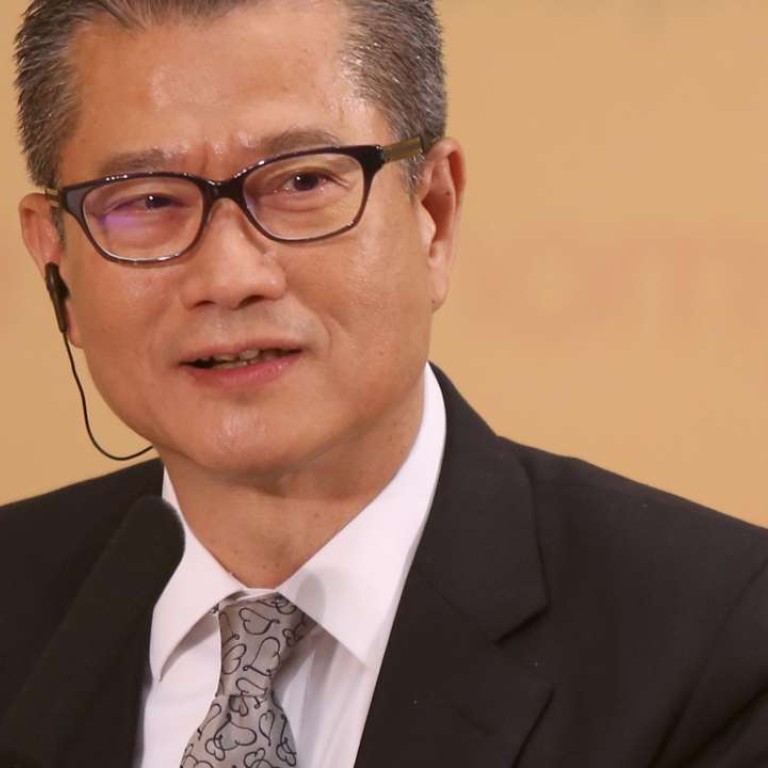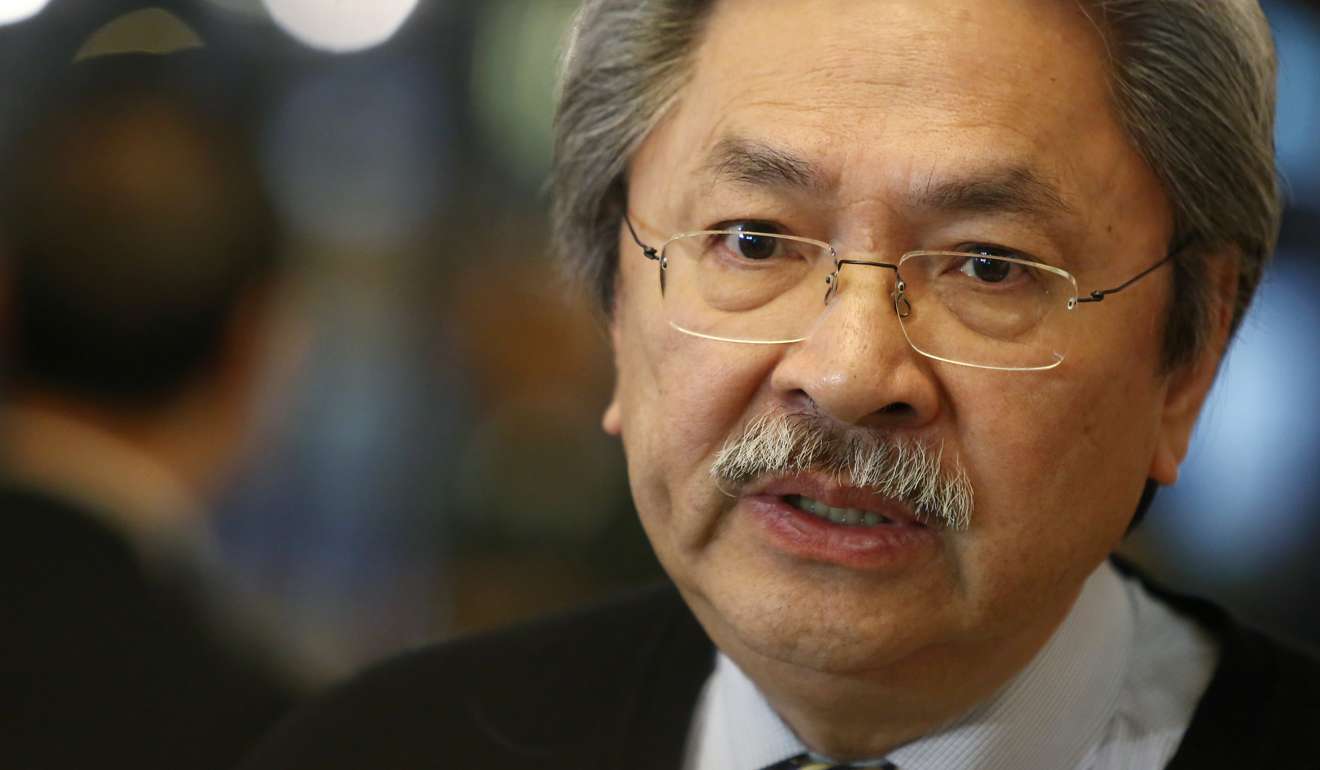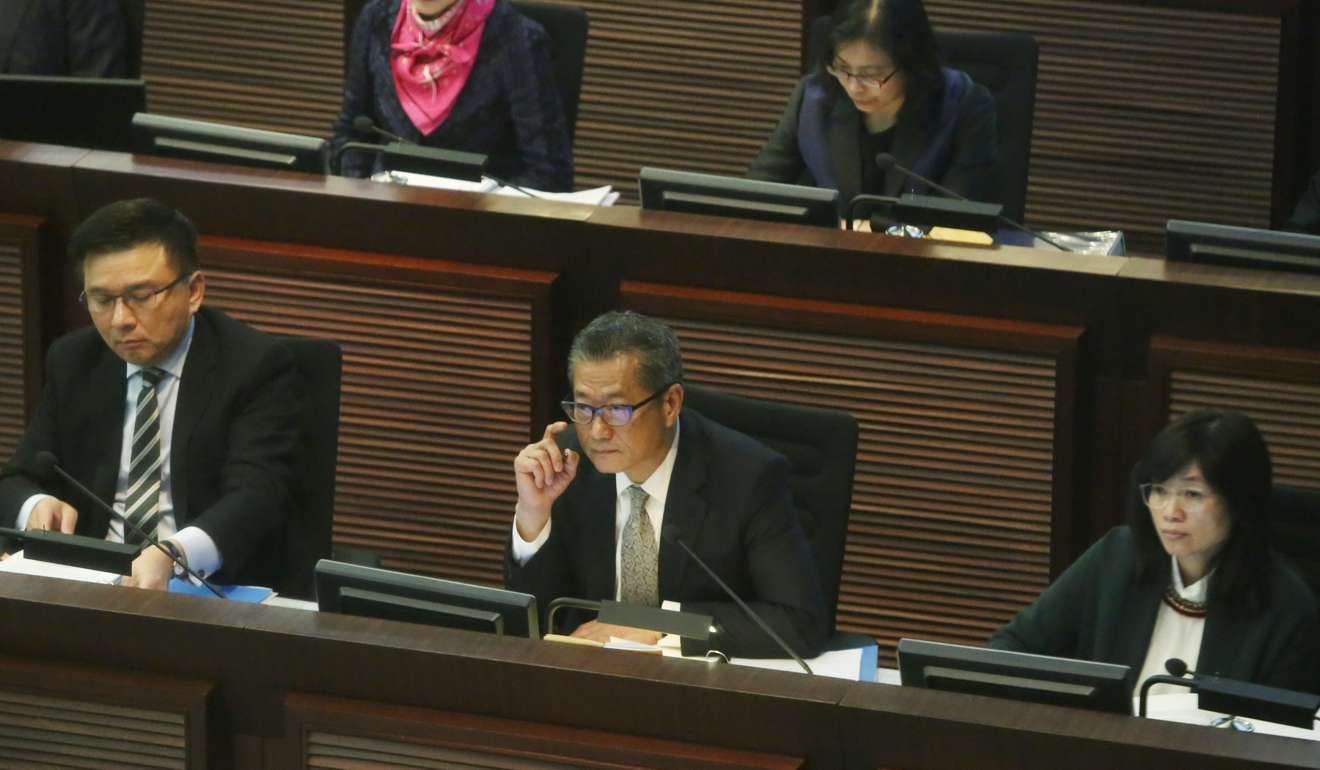
Hong Kong’s finance chief Paul Chan defends his budget’s lack of handouts
After maiden speech, former accountant faces calls from disappointed residents on radio show and lawmakers’ questions
Financial Secretary Paul Chan Mo-po defended his maiden budget against a barrage of questions from Hongkongers and lawmakers on Thursday querying the lack of cash handouts, tax allowance increases and waivers of business registration fees.
The former accountant attended a radio phone-in programme a day after seeking to be more aggressive than his predecessor, John Tsang Chun-wah, in using public finances.
In his first, and perhaps last, budget speech on Wednesday he vowed to review the city’s tax system and retain fiscal prudence.
Where Chan stuck to his predecessor’s path was in handing out one-off sweeteners, this time totalling HK$35.1 billion, including cuts to salaries and profits taxes, a waiver of rates for a year, and an extra one-month payment for welfare recipients.
But many of the show’s 15 callers criticised him for doing too little.

One caller, surnamed Wan, said: “You did talk about tax waivers, but the child allowance was not increased. I have two kids, and I only benefit from the waiver of rates this year. It’s a bit hard for me.”
Two callers slammed Chan for not giving out cash handouts, as the Macau government has done in recent years.
These are all measures that Tsang had adopted during his tenure, but Chan said they would not have been appropriate.
“We have increased our child allowance in recent years, so this year I am widening the marginal bands for salaries tax instead,” he said, adding that he did not believe in cash handouts.
Chan also defended not investing any of last year’s HK$92.8 billion surplus in the Future Fund, which Tsang created in 2015 for a rainy day. Tsang put HK$220 billion from the existing land fund and a third of the government’s annual budget surplus into it, and decided that there would be periodic injections.
Asked if the fund would lose vitality without the injection from this year’s surplus, Chan said: “It won’t. It still has plenty of money and the Monetary Authority is making investments with it.”
Instead, Chan chose to use 65 per cent of the surplus on services for the elderly and the disabled, sports, innovation technology and youth development.

Chan said he would leave the Labour and Welfare Bureau to decide how to spend the HK$30 billion earmarked for the elderly, taking into account an advisors’ report expected later this year.
The Labour Party’s Dr Fernando Cheung Chiu-hung urged Chan to set up a high-level, cross-bureau platform to gauge views on how to meaningfully spend the HK$3 billion allotted for elderly services.
Michael Tien Puk-sun of the New People’s Party praised Chan’s initiative to review the tax system, but queried how he would press ahead on this given Hongkongers’ track record of resistance to tax changes. A case in point was the government’s failure to push through a sales tax in 2006.
Chan replied that when the city’s economies were diversified, he was optimistic that reliance on a narrow range of industries would be lessened.
In an interview with about 500 people on Wednesday, the University of Hong Kong found a budget satisfaction rating of 55.7 out of 100 – 1.5 down on Tsang’s budget a year ago. Chan’s popularity rating rose from 34 per cent two weeks ago to 47.4 per cent.


